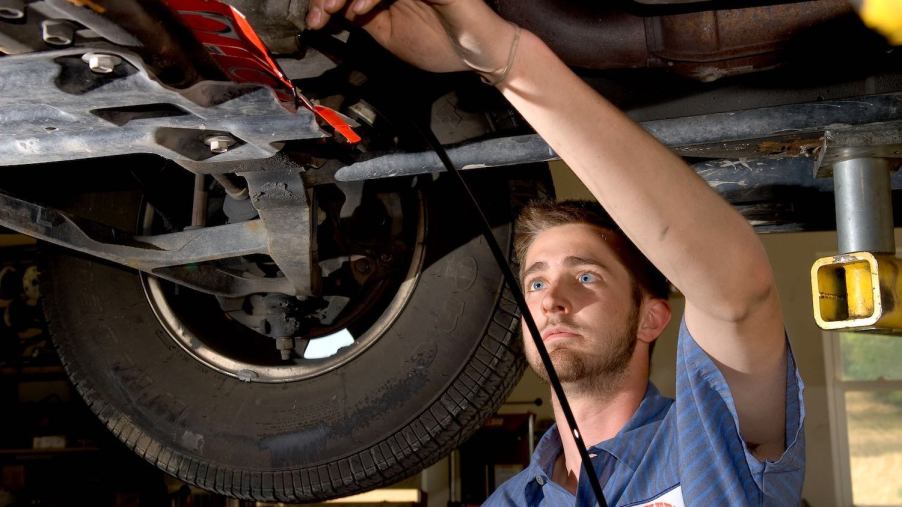
Should You Really Replace Your Filter Each Time You Change Your Oil?
Shortly after purchasing your first car, the reality of just how expensive vehicles can be settles in. Between maintenance, fuel, and insurance, owning a car costs much more than the car itself. That can leave many drivers searching for places to save money. But when it comes to oil changes, replacing the oil filter isn’t optional.
The purpose of your vehicle’s oil filter
How an oil filter works in your car’s engine
The oil filter might not look like much more than a simple can. But it plays an important role in making sure your car never strands you on the side of the road. As you drive, your car’s engine pushes oil through the filter. This process purifies the oil before it makes a return trip through the engine.
Most drivers know that oil keeps the engine’s moving parts properly lubricated, which drastically increases the life of the engine. But it’s also imperative that the oil be clean, which is where the oil filter comes into play.
The filter removes dirt and tiny flecks of metal from the oil. As such, only clean oil comes into contact with the moving engine parts. Not only does the lack of dirt and metal flecks prevent the system from clogging, but it also means the tiny particles aren’t scraping, denting, or scratching the engine components.
What kind of oil filter should you use?
The good news is that the mechanic who changes your vehicle’s oil will also replace the oil filter. While this is a given, it’s in your best interest to as a few questions about the quality of the oil filter.
In the long run, spending a few extra bucks on a good oil filter will spare you from some major auto repairs down the road. Make sure the filter your mechanic is putting in your vehicle uses filter paper instead of a filter that’s made out of cheap cotton waste. The filter also needs to have a check valve that prevents the oil from draining into the filter’s housing.
Should you replace your oil filter with every oil change?
Replacing the oil filter each time you change the oil drives up the cost of yearly auto maintenance, so you may wonder if it’s required. Getting a straight answer is anything but simple.
If you read through your owner’s manual, the manufacturer suggests changing the filter with every oil change at every 6,000-10,000 miles.
Impartial mechanics say that the amount and type of driving you do influences the required frequency of your oil filter replacement. Most drivers will be fine if they change the filter every 7,500 miles, but in extreme driving conditions, 3,000-mile intervals may be a better idea. Extreme driving conditions include:
- A great deal of stop and go traffic
- If your vehicle frequently operates in extreme temperatures
- If the bulk of your driving takes place on dirt roads or dusty conditions
- Frequently towing heavy loads
The one thing that everyone does agree on is that when it comes to changing your oil filter it’s better to spend a few extra dollars and have it changed too frequently than not enough. When was the last time you replaced your vehicle’s oil filter?


